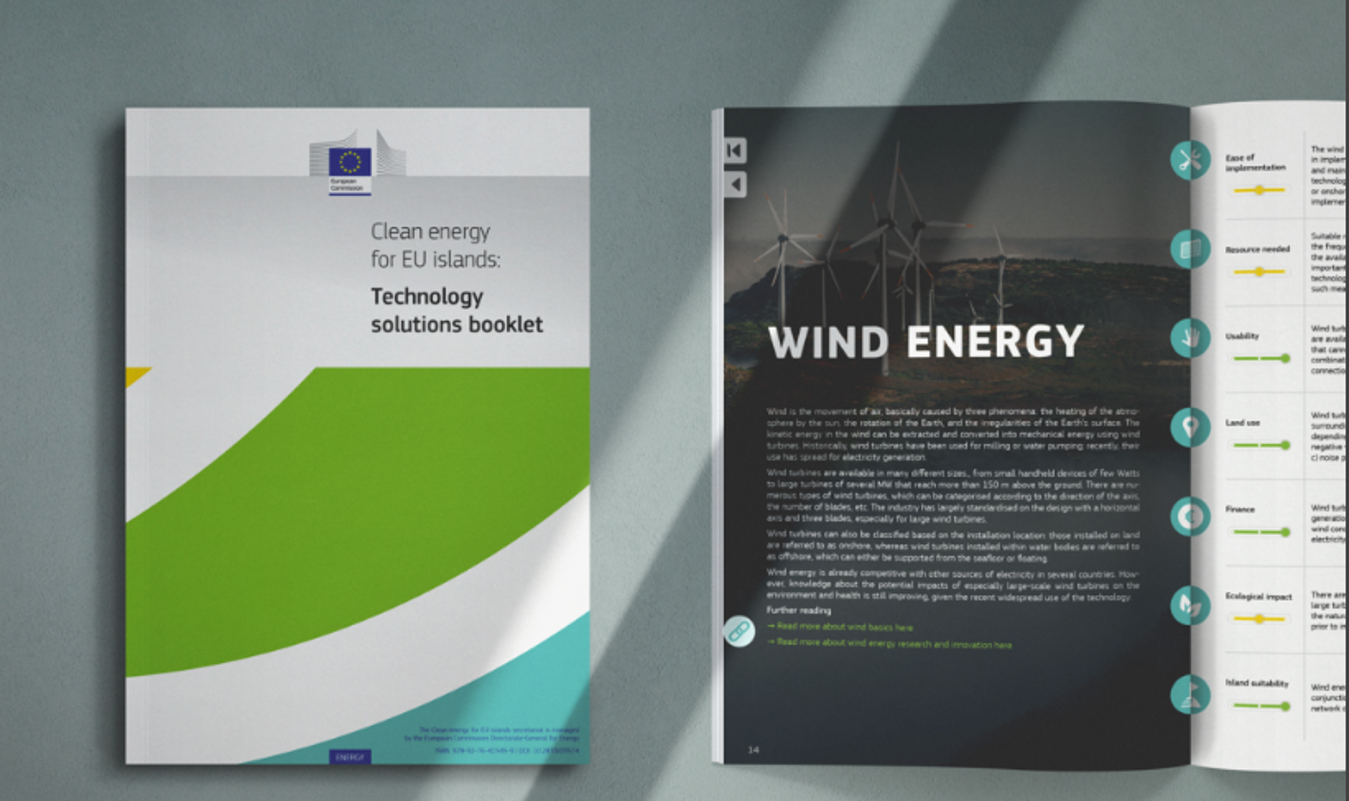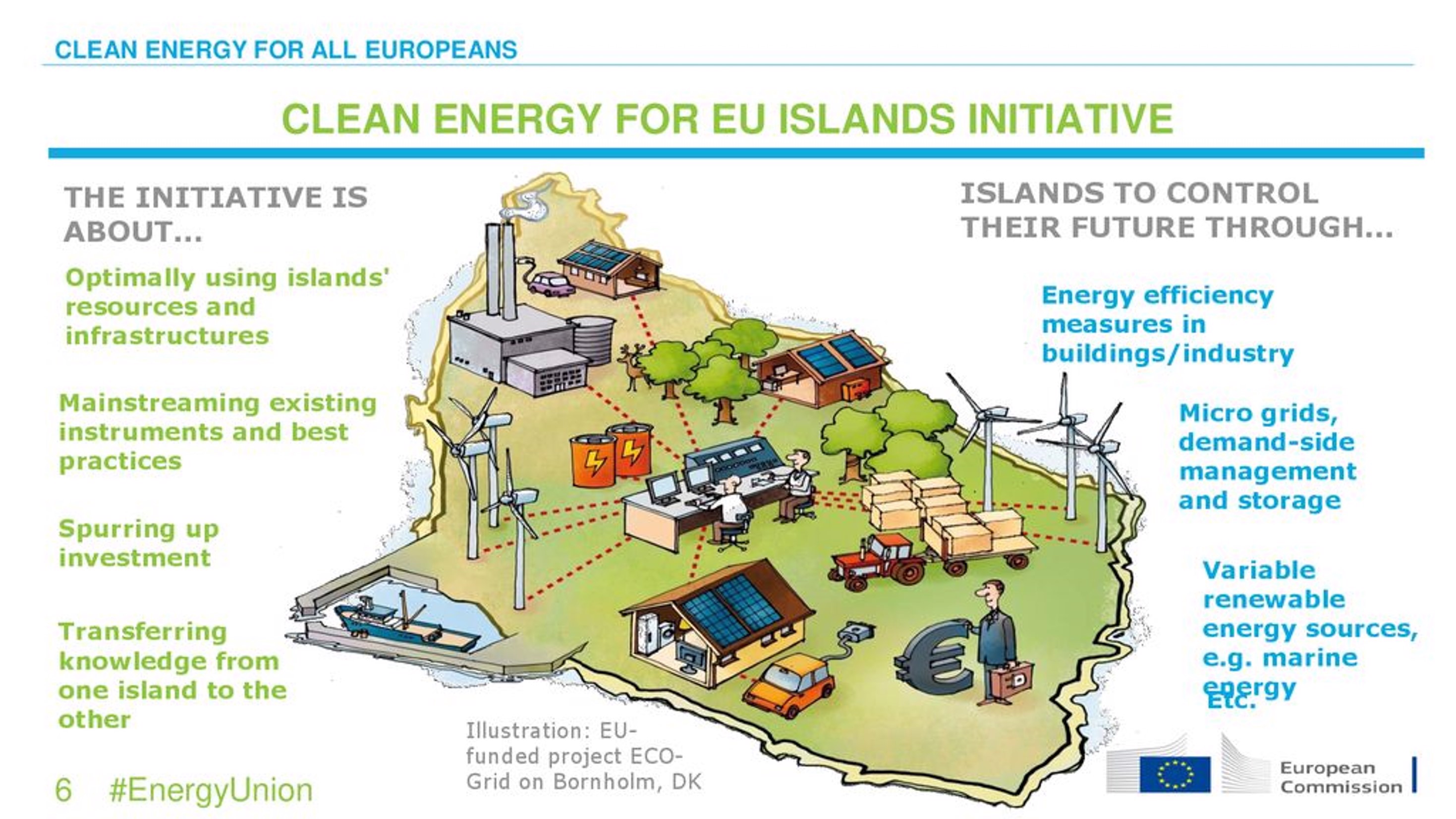Clean Energy for EU islands
Description
Clean Energy for EU islands is an official website of the European Union. The Clean Energy for EU islands Initiative was launched in May 2017 to provide a long-term framework to accelerate the transition towards clean energy on Europe’s more than 2200 inhabited islands. As a support to the launch of the initiative, the Clean Energy for EU islands Secretariat was set up to act as a platform of exchange of practice for island stakeholders and to provide dedicated capacity building and advisory services. The secretariat aims to support the transition processes on all EU islands. To focus its efforts, 26 islands were selected to receive island-specific methodological support to develop strategic energy transition plans. The Secretariat works according to a participative, bottom-up approach that on one hand aims to overcome the island’s main challenges and on the other hand recognizes the potential of islands to emerge as ideal test beds for the deployment of innovative energy technologies.
The primary goals of the Clean Energy for EU Islands program encompass the following aspects: providing assistance to islands in their pursuit of transition agendas, fostering public involvement, engagement, and empowerment, facilitating the establishment of renewable energy communities, and promoting the sharing of exemplary projects and best practices.

Gallery

Classifications
Scale of implementation
The Clean energy for EU islands secretariat is the central platform for the clean energy transition of the more than 2,200 inhabited European islands. It informs about policy and regulatory issues for Europe’s island communities and provides dedicated advice for capacity building and clean energy transitioning.
Type
The Clean energy for EU islands is a web-based platform accessible through a web browser. It operates as an online resource hub for renewable energy data and many other useful information. A book named “Technology solutions booklet” was released in 2022, providing an overview of energy technologies.
Phase of solution
The Clean energy for EU islands secretariat website offers information about ongoing projects on EU islands, best practices, webinars and workshops as well as additional useful documents for data mining when planning to get involved in an island energy research.
Target audience
Clean Energy for EU islands targets policymakers, government agencies, researchers, project developers, investors, and businesses engaged in island renewable energy . It serves as a valuable resource, offering them data, tools, and resources for assessing renewable energy potential, formulating policies, planning projects, and making informed investment decisions in islands.
Key features-functionality
The Clean energy for EU islands program, which is a component of the 'Clean energy for all Europeans' package, offers a comprehensive and enduring framework aimed at facilitating the production of sustainable and cost-effective energy by islands.
- The implementation of these measures will lead to a decrease in energy expenses and a significant rise in the generation of renewable energy.
- Additionally, it will involve the establishment of energy storage facilities and demand response systems utilizing state-of-the-art technologies. Consequently, this will enhance the energy security of islands by reducing their dependence on external energy sources.
- Furthermore, it will contribute to the amelioration of air quality, a reduction in greenhouse gas emissions, and a mitigation of the adverse effects on the natural environments of islands. Lastly, the implementation of these measures will stimulate the creation of employment opportunities and foster the development of new businesses, thereby bolstering the islands' economic self-sufficiency.
The Clean Energy for EU Islands Secretariat addresses a range of significant subjects, including:
- The topic of energy generation is of significant importance in the field of study.
- The concept of energy efficiency refers to the ability to achieve a desired level of energy output or service while minimizing the amount of energy input
- The topic of discussion pertains to the processes of heating and cooling.
- The transportation system of the island.
References & Sources for Further Reading
